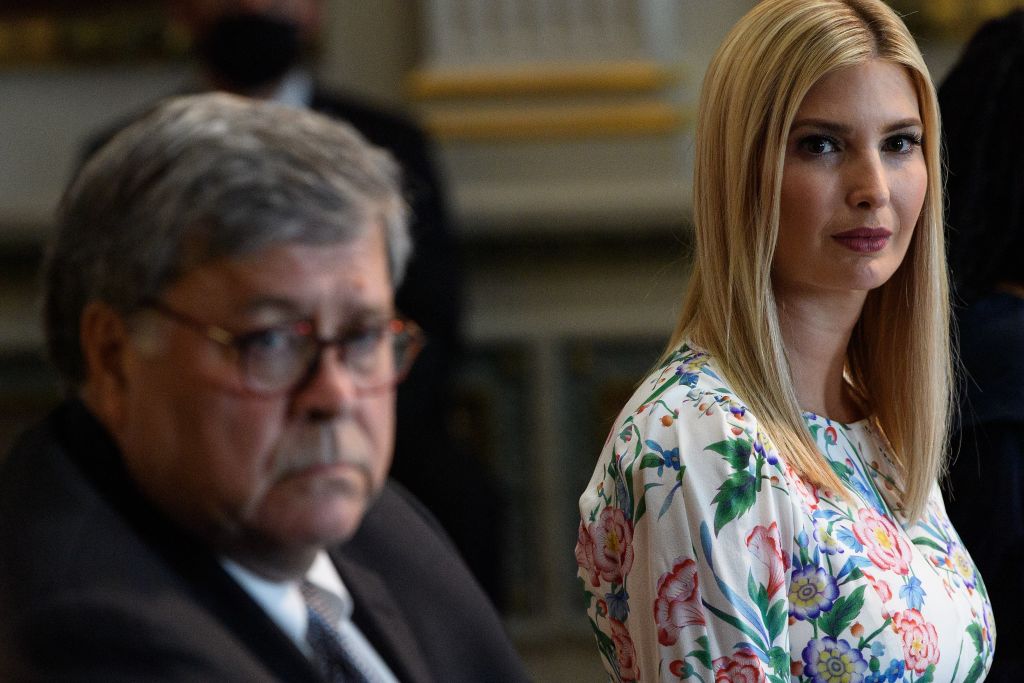Mueller didn't investigate Trump's finances or question Ivanka Trump due to blowback fears, prosecutor recounts


A free daily email with the biggest news stories of the day – and the best features from TheWeek.com
You are now subscribed
Your newsletter sign-up was successful
Special Counsel Robert Mueller's investigation of Russian election interference and President Trump's 2016 campaign treated Trump's family and personal finances with kid gloves, mostly out of concern that Trump would shut down the investigation, former federal prosecutor Andrew Weissmann writes in a new book, Where Law Ends.
At one critical juncture in 2017, the Mueller team issued a subpoena to Deutsch Bank for records about Trump campaign chairman Paul Manafort's Ukraine income, and even though the subpoenas were secret, the White House found out and demanded to know if Mueller was seeking financial information on Trump, Weissmann recounts, according to The New York Times.
Mueller authorized his cautious deputy, Aaron Zebley, to assure the White House they had not subpoenaed Trump's financial records, and "at that point, any financial investigation of Trump was put on hold," Weissmann writes. "That is, we backed down — the issue was simply too incendiary; the risk, too severe." He points to other dropped leads, like "payments linked to a Russian oligarch" turning up in the same account from which Trump paid two purported paramours, and Trump's active efforts to build a Trump Tower in Moscow.
The Week
Escape your echo chamber. Get the facts behind the news, plus analysis from multiple perspectives.

Sign up for The Week's Free Newsletters
From our morning news briefing to a weekly Good News Newsletter, get the best of The Week delivered directly to your inbox.
From our morning news briefing to a weekly Good News Newsletter, get the best of The Week delivered directly to your inbox.
Weissmann also reveals that even though Ivanka Trump spoke with a Russian delegation that met in Trump Tower with Donald Trump Jr. and other campaign officials about handing over Russian dirt on Hillary Clinton, Mueller's investigators did not try to question her because they "feared that hauling her in for an interview would play badly to the already antagonistic right-wing press — look how they're roughing up the president's daughter — and risk enraging Trump."
Those fears might have been justified early on in the investigation, before they got up and running, Weissmann told the Times, but he and other team leaders believed they should have gotten more aggressive later on. "We would have subpoenaed the president after he refused our accommodations, even if that risked us being fired," he wrote. "It just didn't sit right. We were left feeling like we had let down the American public, who were counting on us to give it our all."
A free daily email with the biggest news stories of the day – and the best features from TheWeek.com
Peter has worked as a news and culture writer and editor at The Week since the site's launch in 2008. He covers politics, world affairs, religion and cultural currents. His journalism career began as a copy editor at a financial newswire and has included editorial positions at The New York Times Magazine, Facts on File, and Oregon State University.
-
 American universities are losing ground to their foreign counterparts
American universities are losing ground to their foreign counterpartsThe Explainer While Harvard is still near the top, other colleges have slipped
-
 How to navigate dating apps to find ‘the one’
How to navigate dating apps to find ‘the one’The Week Recommends Put an end to endless swiping and make real romantic connections
-
 Elon Musk’s pivot from Mars to the moon
Elon Musk’s pivot from Mars to the moonIn the Spotlight SpaceX shifts focus with IPO approaching
-
 Epstein files topple law CEO, roil UK government
Epstein files topple law CEO, roil UK governmentSpeed Read Peter Mandelson, Britain’s former ambassador to the US, is caught up in the scandal
-
 Iran and US prepare to meet after skirmishes
Iran and US prepare to meet after skirmishesSpeed Read The incident comes amid heightened tensions in the Middle East
-
 EU and India clinch trade pact amid US tariff war
EU and India clinch trade pact amid US tariff warSpeed Read The agreement will slash tariffs on most goods over the next decade
-
 Israel retrieves final hostage’s body from Gaza
Israel retrieves final hostage’s body from GazaSpeed Read The 24-year-old police officer was killed during the initial Hamas attack
-
 China’s Xi targets top general in growing purge
China’s Xi targets top general in growing purgeSpeed Read Zhang Youxia is being investigated over ‘grave violations’ of the law
-
 Panama and Canada are negotiating over a crucial copper mine
Panama and Canada are negotiating over a crucial copper mineIn the Spotlight Panama is set to make a final decision on the mine this summer
-
 Why Greenland’s natural resources are nearly impossible to mine
Why Greenland’s natural resources are nearly impossible to mineThe Explainer The country’s natural landscape makes the task extremely difficult
-
 Iran cuts internet as protests escalate
Iran cuts internet as protests escalateSpeed Reada Government buildings across the country have been set on fire
